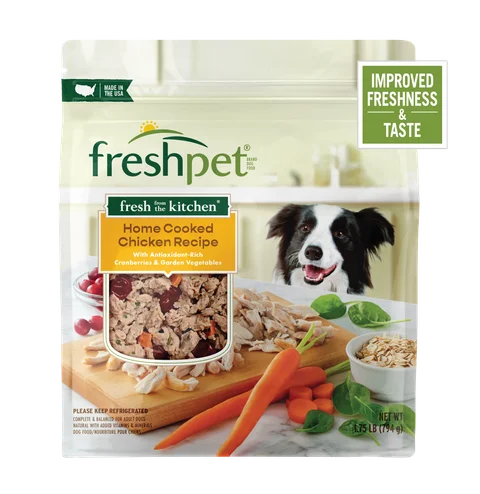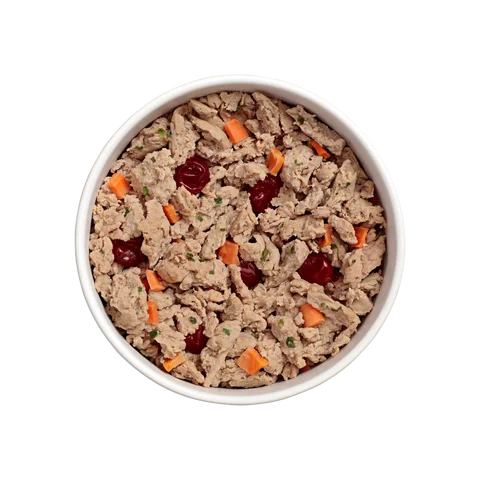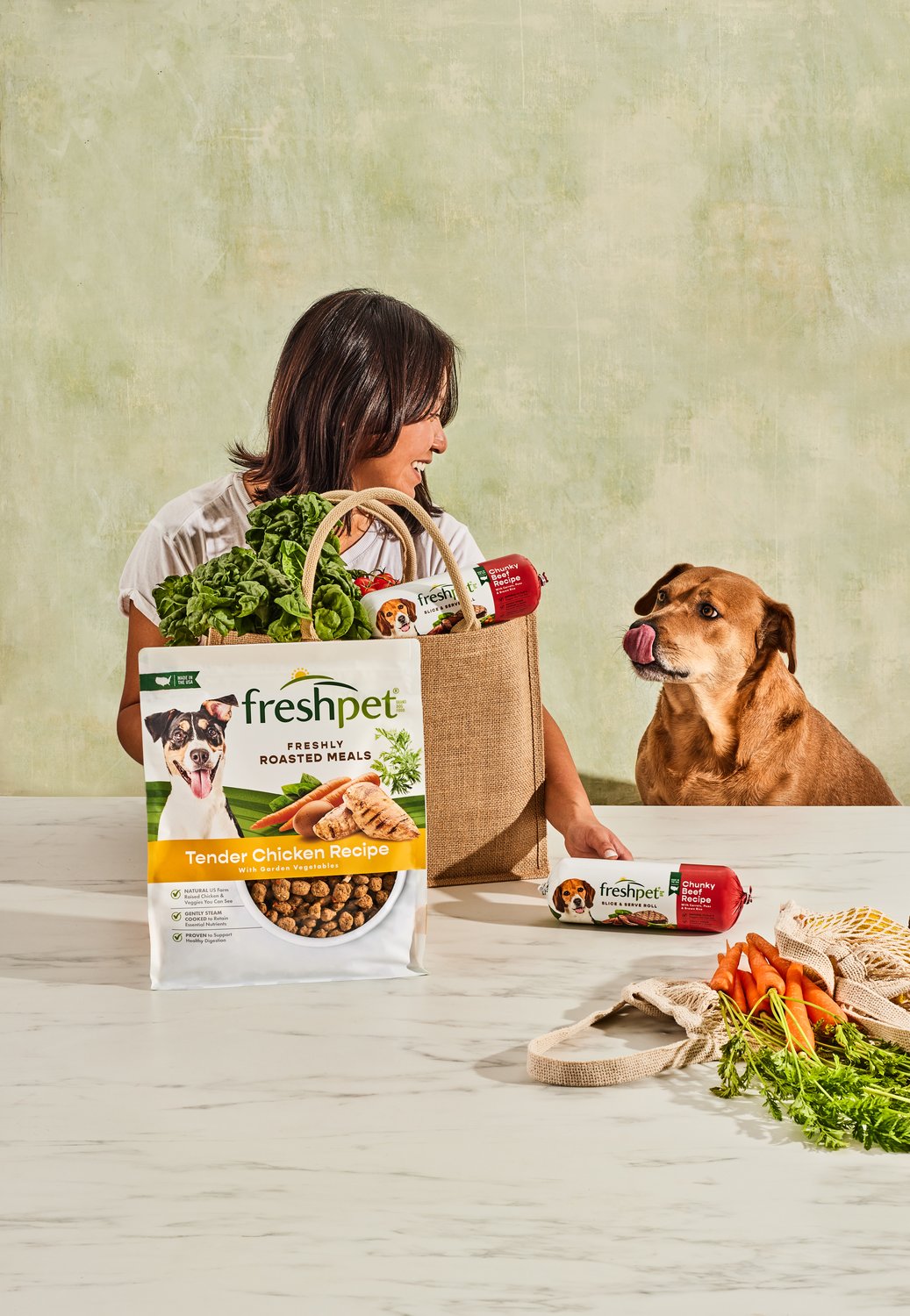


written by Tori Holmes
It’s true, you are what you eat…but what does that mean exactly? Join us as Freshpet vet, Dr. Aziza, shares fun facts about the important relationship between dog nutrition and skin health.
You read that correctly – the skin is the largest organ of the body! Its purpose is to protect our more delicate organs from thermal, chemical, and physical damage.
Just like other organs, the skin has specific nutritional needs that vary based on genetics, environment, and lifestyle. The majority of these nutrients are obtained from your dog’s diet, so whenever there are nutritional deficiencies, the skin is one of the first places it is observed. Dogs that aren’t getting all of the nutrients they need from their diet will display:
● Skin that is red, too dry, or too oily
● Hair loss
● Dandruff
● Dull coat
● Changes in coat color
On the other hand, a shiny coat (depending on the breed), soft skin, and little to no hair loss are signs of healthy skin and a well-balanced diet.
There are certain nutrients that are crucial for healthy skin, including:
● Omega fatty acids: Omega-6 and Omega-3 fatty acids promote healthy cell growth and replace oils in the skin, helping to keep fur shiny. If you’re looking to improve the health of your dog’s skin and coat, fish oil is a great source of omega fatty acids. While it can always be added to your dog’s diet as a supplement, certain foods like Freshpet’s Vital® Grain-Free Ocean Whitefish & Salmon Recipe or Nature’s Fresh® Grain-Free Atlantic Salmon & Wild Alaskan Pollock Recipe already include a healthy source of omega fatty acids.
● Vitamins and minerals: Zinc, B vitamins, Biotin, and Vitamin C are all great for reducing inflammation in the body, fat metabolism, and keeping the epidermis and dermis layers of the skin healthy. Fresh vegetables and fruit are great sources of all of these nutrients. While most dry kibble starts with ingredients such as fresh fruits and veggies, it’s cooked at such high temperatures that they lose all nutritional value. Freshpet, on the other hand, gently steams their recipes so the fruit and vegetables, such as blueberries and sweet potatoes, maintain their natural goodness. I’d recommend trying Freshpet® Select Small Dog Chicken & Turkey Recipe with Cranberries & Spinach for a well-balanced option that also provides a great source of antioxidants, zinc, and vitamins.
Over 30% of a dog’s daily protein consumption is used to maintain healthy skin and coat. In other words, protein is a big deal for your dog’s skin. If you’re not sure which protein to choose, consider a multi-protein recipe such as Freshpet® Select Multi-Protein Complete Meal.
It’s important to note, however, that around 80% of dogs with food allergies are allergic to the protein force in their food – not the grains. If left untreated, food allergies will result in unhealthy skin and coat.
Once a dog is determined to have a protein-based food allergy, it is important to adjust the diet for successful treatment. A dog’s diet must include high-quality protein, so your veterinarian will help you find one that is best suited for its body. While there are many options on how to determine the best protein alternative, the golden standard is to perform a diet trial. Like humans, it will be a process of trial and error…and it may take some time. A great way to start is by introducing a novel (or new) protein to your dog’s diet, like Vital® Grain-Free Beef & Bison Recipe.
Skin loves moisture and hydration. In fact, when a dog is dehydrated the skin is one of the first places a veterinarian uses for diagnosis. Dehydration will change the elasticity or texture of the skin and can cause it to appear dry and cracked. In addition to serious health concerns like kidney disease, dehydration can lead to itchy skin and secondary skin infections – both of which are very painful for your dog.
Fortunately, it’s not difficult to ensure your dog maintains a proper level of hydration! One of the easiest ways to increase water consumption is through their diet. Fresh food for dogs has a much higher moisture content than kibble – Freshpet recipes actually have a moisture content of 72% whereas dry kibble typically only has a moisture content of around 10%. That’s why Freshpet recipes are great for preventing dehydration, especially on hot days. Since the ingredients in all of their recipes are gently steamed, the moisture is retained and passed on to your dog.
Although it’s often taken for granted, the skin has an important role in your dog’s overall health! For more information on how nutrition can increase your dog’s health, make sure you contact your primary care veterinarian or a veterinary nutritionist.

Dog Nutrition & Feeding
To help your pup transition to fresh food easier, we’ve put together a handy guide covering how much to feed your pet and other top nutritional questions.

freshpet recipes
It’s important that you can choose how to get Freshpet to your home. This is why we’re proud to offer three different ways for you to purchase our recipes.